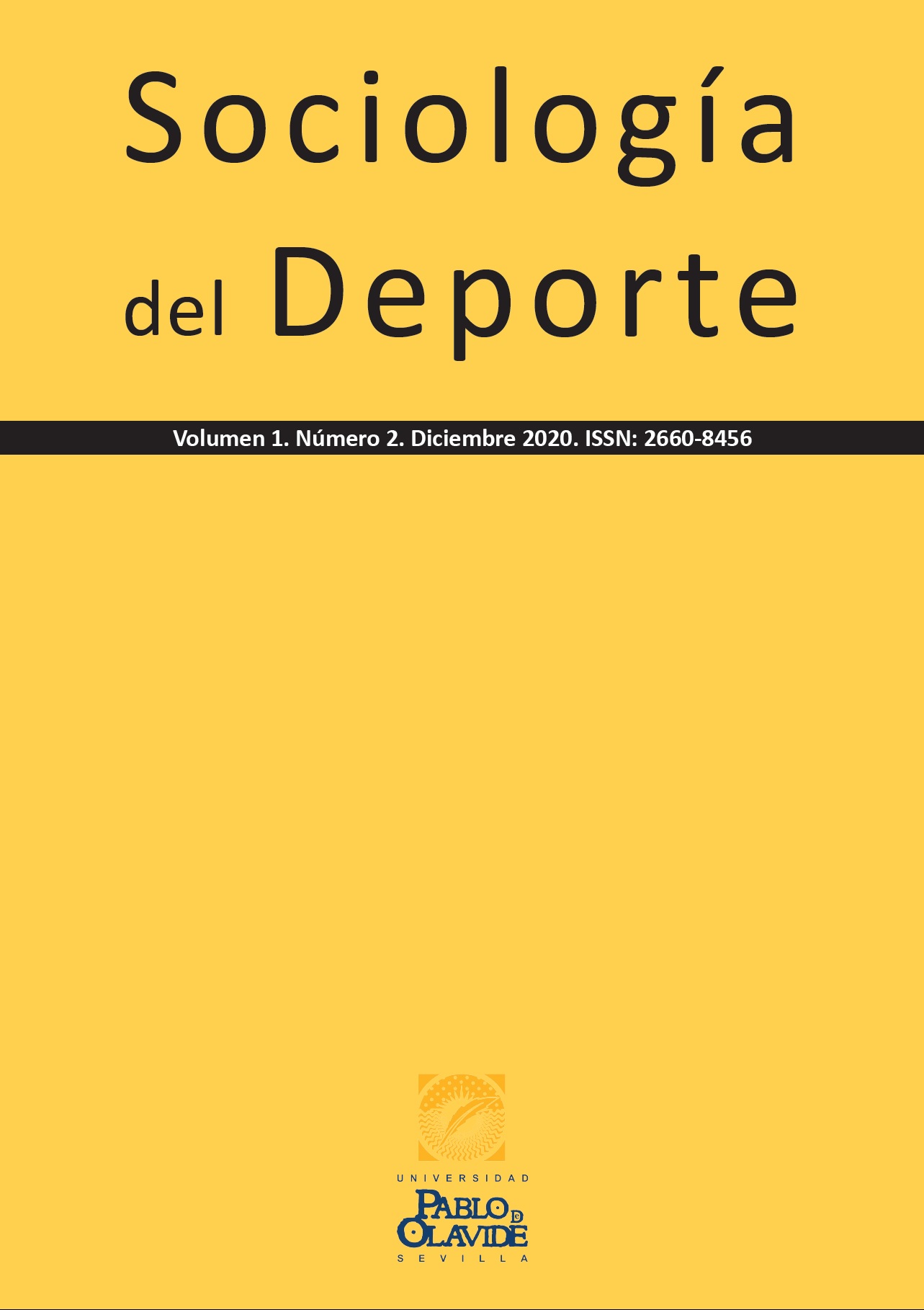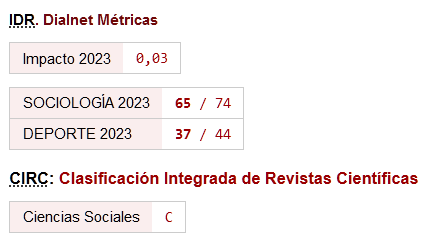Portuguese football coaches’ migration: Patterns and networks in 2009-2013
DOI:
https://doi.org/10.46661/socioldeporte.5098Keywords:
football, coaches, networks, migration, globalizationAbstract
Sport migration is an important topic of global migration. It can capture migration patterns and the reliance on networks, which are specific to sports. This study seeks to identify the patterns and networks of Portuguese football coaches’ migration between 2009 and 2013. This period is important because these were years of financial crisis with high rates of unemployment. We collected data about destination countries of migrant coaches. For coaches working abroad in 2013, we also collected data about their career path and networks including the assistant coaches and players with whom they had previously worked. The results showed that the destination of Portuguese football coaches involves both peripheral and central areas of football prestige. The pattern of migration suggests an overlap of economic, historical and cultural factors. On the other hand, the network relations of Portuguese football coaches were prominent in a zone of high prestige close to the native country, and in a zone with high financial incentives but lower football prestige. Taken together, these results highlight the career specificities of coaches who migrate to different countries including the role of networks on a football coaching career abroad.
Downloads
References
Agergaard, Sine, and Botelho Vera. 2011. “Female football migration. Motivational factors for early migratory process”. In Sport and migration: Border, boundaries and crossings, edited by J. Maguire and M. Falcous, 157–172. London: Routledge.
Andreff, Wladimir. 2011. “Why tax international athlete migration? The ‘Coubertin’ tax in a context of financial crisis”. In Sport and migration: Border, boundaries and crossings, edited by J. Maguire and M. Falcous, 31–45. London: Routledge.
Armstrong, Gary, and Giulianotti Richard. 2004. Football in Africa: Conflict, Conciliation and Community. Basingstoke and New York: Palgrave Macmillan,
Bale, John. 1989. Sports Geography. London: E. & F.N. Spon,
Bale, John, and Maguire Joseph. 1994. The global sports arena: athletic talent migration in an interdependent world. London: CASS,
Bale, John, and Dejonghe Trudo. 2008. “Sports Geography: an overview”. Belgeo 2. Retrieved from http://belgeo.revues.org/10253
Besson, Roger, Poli Raffaele, and Ravenel Loic. 2013. CIES Football Obsevatory Demographic Study 2013. Neuchâtel: Centre International d'Etude du Sport.
Borges, Mario, Rosado Antonio, de Oliveira Rita and Freitas Freitas. 2015. “Coaches’ migration: A qualitative analysis of recruitment, motivations and experiences”. Leisure Studies, 34 (5): 588-602.
Carter, Thomas. 2004. The migration of sporting labour into Ireland. In Sport and the Irish: Histories, identities, issue, edited by A. Bairner, 191–205. Dublin: University College Dublin Press.
Carter, Thomas. 2011. In Foreign Fields. The Politics and Experiences of Transnational Sport Migration. London, UK: Pluto Press.
Darby, Paul. 2007. “African Football Labour Migration to Portugal: Colonial and Neo-Colonial Resource”. Soccer in Society, 8 (4): 495-509.
Eurostat 2014. “Unemployment statistics”. October.http://epp.eurostat.ec.europa.eu/
statistics_explained/index.php/Unemployment_statistics
Elliot, Richard, and Maguire Joseph. 2011. “‘Net-gains’. Informal recruiting, Canadian players and British professional ice hockey”. In Sport and migration: border, boundaries and crossings, edited by J. Maguire and M. Falcous, 103–111. London: Routledge.
Lanfranchi, Pierre, and Taylor Matthew. 2001. Moving with the ball: The migration of professional footballers. Oxford: Berg.
Lima, Maria. 2010. Government announces new measures to tackle unemployment. Eurofound.March15.http://eurofound.europa.eu/observatories/eurwork/articles/other/government-announces-new-measures-to-tackle-unemployment
Magee, Jonathan, and Sugden John. 2002. “The world at their feet’: Professional football and international labour migration”. Journal of Sport and Social Issues, 26: 421–437.
Maguire, Joseph. 1999. Global sport: Identities, societies, civilisations. Cambridge: Polity.
Nolasco, Carlos. 2009. “Moving Behind the Ball: Migratory Flows of Portuguese Football”. World Congress of the Sociology of Sport, Utrecht University: Netherlands.
Poli, Raffaele. 2008. “Les footballeurs maghrébins en Suisse (1962-2008)”. Migrance, 29: 74-81.
Poli, Raffaele. 2010. “Understanding globalization through football: the new international division of labour, migratory channels and transnational trade circuits”. International Review for the Sociology of Sport, 45 (4): 491-506.
Poli, Raffaele, and Besson Roger 2011. “From the South to Europe. A comparative analyses of African and Latin football migration”. In Sport and migration: Border, boundaries and crossings, edited by J. Maguire and M. Falcous, 15–30. London: Routledge.
Poli, Raffaele, Besson Roger, and Ravenel Loic. 2013. CIES Football Observatory Annual Review 2013. Neuchâtel: Centre International d'Etude du Sport.
Smith, Graham. 2016. Migratory career contingencies of elite level soccer coaching talent. Soccer & Society, 17 (4): 407-432.
Sugden, John, and Tomlinson Alan. 2002. Power games. A critical sociology of sport. London: Routledge.
Taylor, Matthew. 2010. “Football's Engineers? British Football Coaches, Migration and Intercultural Transfer, c.1910–c.1950s”. Sport in History, 30 (1): 138-163.
Wallerstein, Immanuel. 1974. The modern world system. New York: New York Academy Press.

Downloads
Published
How to Cite
Issue
Section
License
Copyright (c) 2020 Mario Borges, Antonio Rosado, Rita de Oliveira, Francisco Freitas

This work is licensed under a Creative Commons Attribution-NonCommercial-ShareAlike 4.0 International License.








